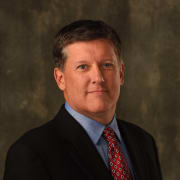Why Did the PGA Tour Need to Partner With LIV Golf's Backer? Follow the Money

The PGA Tour is a $1.5 billion business, give or take a few million dollars. It not only reaps revenue from tournaments, Tournament Players Clubs, media rights and licensing but also has various investments.
It has a huge financial benefactor in FedEx. The Players Championship has presenting sponsors in Morgan Stanley, Optum and Comcast.
When a title sponsor departs, the Tour always seems to find someone to step in. Honda bowed out after this year's tournament, and the Tour says it is close to finding a replacement. AT&T is leaving the Byron Nelson after next year but is set to make a much bigger commitment at Pebble Beach.
More Weekly Read: Fore! Things
For years, the Tour has rolled on and on. With the help of Tiger Woods, it negotiated ever-growing television rights deals. FedEx upped its commitment. Title sponsors pay more so purses increase.
All is good.
Or so it seemed.
The news this week of the PGA Tour, DP World Tour and Public Investment Fund alliance was shocking enough. Behind it was the Tour’s fear of dwindling reserves and an inability to compete against "a foreign government with unlimited funds," as commissioner Jay Monahan reportedly told his staff last week.
According to the Wall Street Journal, the Tour had already spent $50 million fighting the lawsuit brought by LIV Golf for restraint. It dipped into its reserves for another $100 million to pay for increased purses brought on by the new designated events and the Player Impact Program, which doled out $40 million in bonuses last year and another $100 million this year.
Phil Mickelson referenced the Tour's "obnoxious greed" in a Golf Digest interview last year that was the first step toward the upheaval of the past 18 months. And he's long believed the Tour was sitting on a pile of cash, hording it at the expense of star players who deserved more for being the product.
While Mickelson's views undoubtedly comprise the underlying reason why LIV Golf came into being—more money for the top players, guaranteed pay as well—it seems the idea that the Tour was holding back is at least a bit more complicated.
Why else would the Tour reach out to the rival that it has mocked for most of the last year, basically asking for help?
Without access to the actual numbers, a few scribblings on the back of a napkin easily enough portray a situation that was becoming tenuous.
The pandemic necessitated a big dip into reserves in order to prop up tournaments that had no revenue while events were played without spectators. And that doesn’t include the three months of revenue lost with no events at all, nor the week-to-week COVID-19 testing, charter planes and all manner of expenses associated with the pandemic.
Then came the first attempt at a Player Impact bonus pool that was quietly unveiled in 2021. The $40 million pool was increased to $100 million this year and will subsequently be reined back to $50 million for next year, although the saved funds were supposed to be earmarked for next year.
But it might be the biggest response to LIV Golf that might ultimately have necessitated the peace talks—the designated events.
While the idea to bring the best players together in tournaments more often has largely gone well with fans, there was bound to be some growing pains along with unintended consequences.
The growing pains are being worked on and Monahan himself said last month that they were seeking a "cadence that has a clear separation of designated events and our full-field events." That meant juggling the schedule for 2024.
If you include the nine designated events for 2023, the Players Championship and the three Fed Ex Cup playoff events, the increase in purses for those tournaments year over year was approximately $90 million.
With all of that, only the Players Championship at $25 million is paying more than the individual purse of $20 million at LIV tournaments.
For the four regular events that became designated events—WM Phoenix Open, RBC Heritage, Wells Fargo Championship and the Travelers—each went from approximately $8 million to $20 million this year. That’s a $48 million increase for four events.
Who pays?
This year, the Tour worked out deals with all of the title sponsors, so the numbers vary. But according to Andy Pazder, chief tournaments and competitions officer for the Tour, the responsibility for the purse increases will rest with the sponsors in 2025.
Some have pushed back. A title sponsor that was paying approximately $13-$14 million for a tournament that offered an $8 million purse is now looking at spending $25-$26 million for a designated event. Sure, the field is better, and in some cases considerably better. But is it worth it?
If you are the PGA Tour, you can’t go back on this already-announced idea to present these tournaments and added compensation for the players.
So you go to the Public Investment Fund instead?
It is clearly more complicated than that. There is no indication how the PIF will invest in the Tour itself or if funds from it will be necessary to prop up purses in the future.
It will be the main investor in the for-profit entity to be set up aside from the PGA Tour. How any of that mixes with or without LIV Golf is still to be determined as well. And all of it likely needs regulatory approval.
Where it goes from here is anyone’s guess. How it got to this point now seems more in focus.
